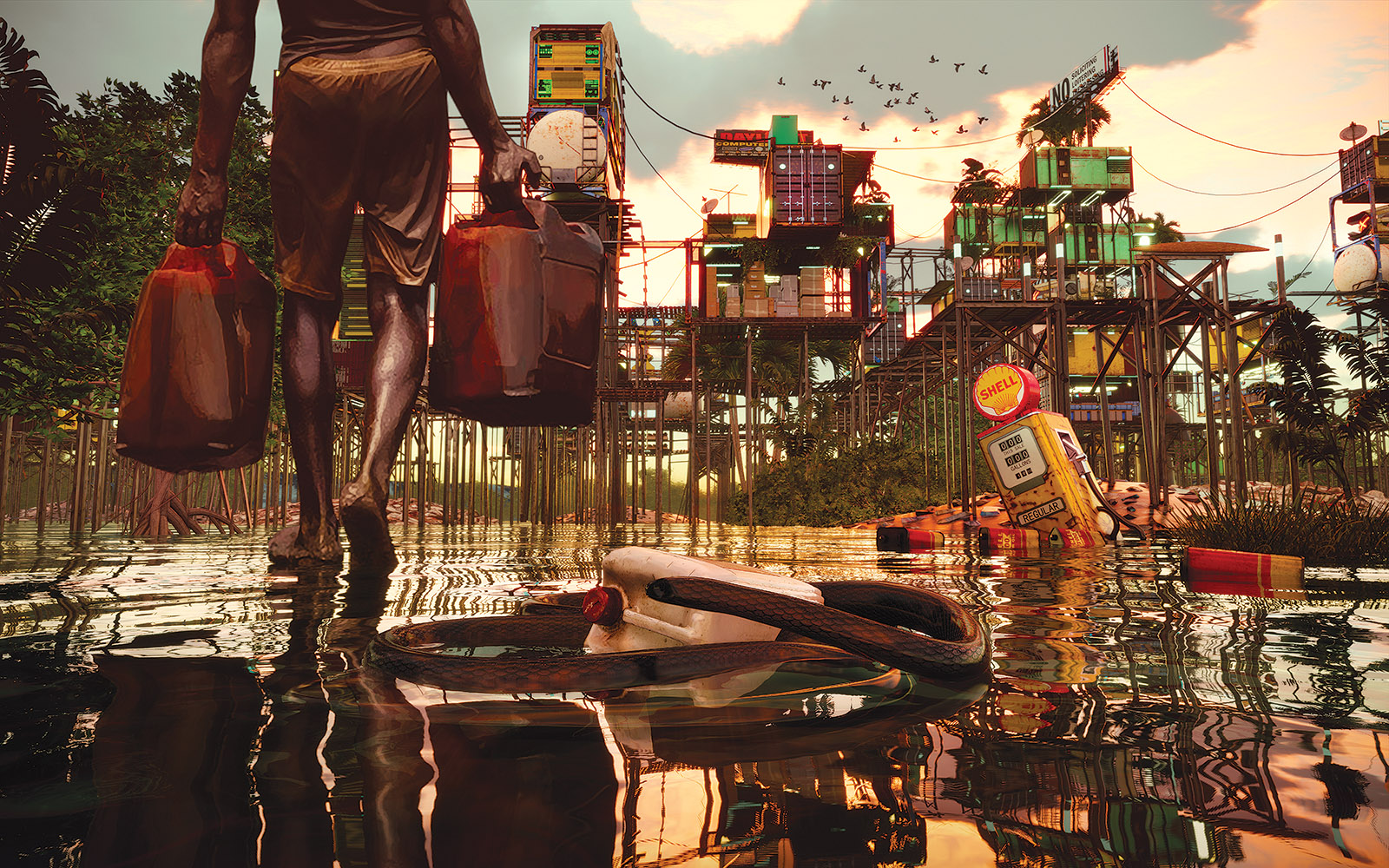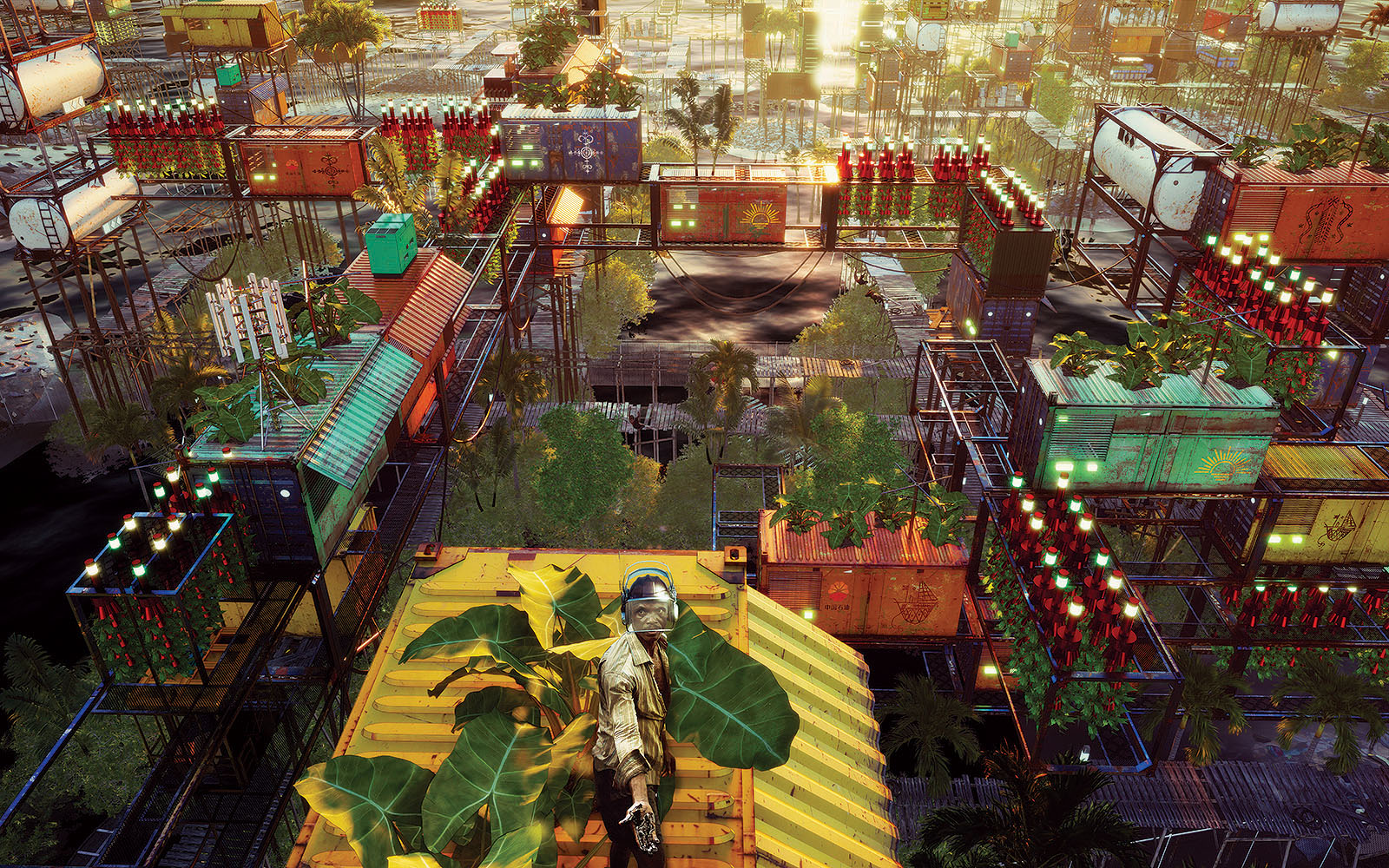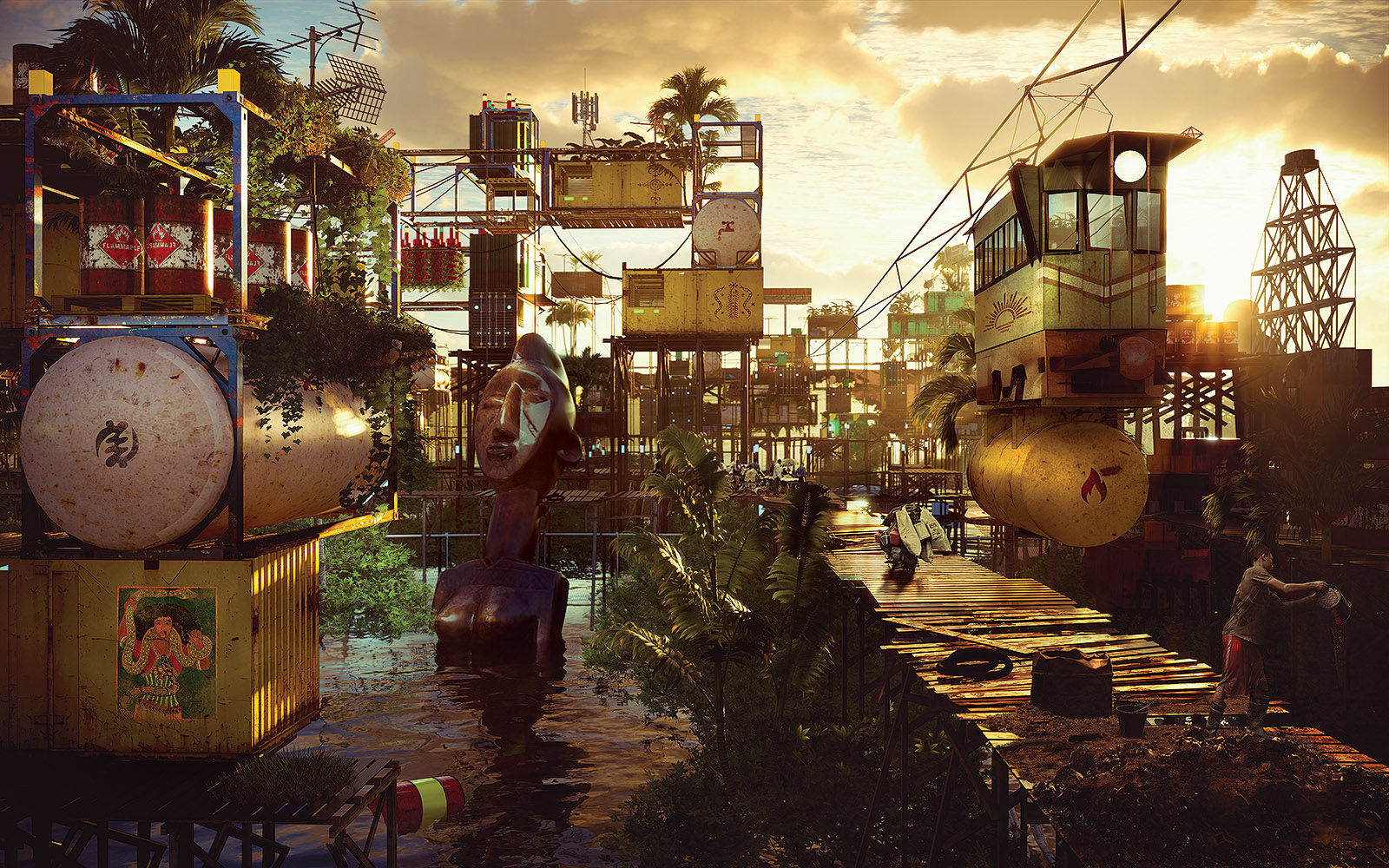VENICE BIENNALE: HOW WILL WE LIVE TOGETHER
[ 17. Mostra Internazionale di Architettura - La Biennale di Venezia, How will we live together?, 2021]
Digital printing on vinyl (wall) - Digital printing on vinyl (floor) - 3 Lightbox displays - Soundscape and Experimental video
“Liquid Geographies, Liquid Borders”
Collaboration w/ Dr.Mpho Matsipa, Wale Lawal, Dani Kyengo O’Neill
Liquid Geographies, Liquid Borders explores the aural and visual landscape of “Lagoon” as a spatial metaphor for complex, slippery exchanges that seek to delineate ownership, but also gestures towards a terrain of blending, branching and stratification of aquatic ecologies.
This fluid, yet striated imaginary space that connects the Niger delta to other waterways emerges at the interface of aquatic ecologies and multiple figurations of Yemoja – the Yoruba goddess of the sea. Yemoja, being goddess of the sea, spread along with the diaspora, can now be considered the goddess of the Black Atlantic.As “mother of fishes” Yemoja is the final piece that connects the environment to sentience, and Yoruba cosmology to the impacts of oil. Taking crude oil-spills as a point of departure, the installation connects oil-fuelled trade and degradation with the lived spatialities of these polymorphic landscapes.
PHOTO-MONTAGES
"Devotees of the Petrotopia #01, #02, #03", 2021
200cm x 125 cm, Lightbox



INSTALLATION
"Winyl Wallpaper / 200cm x 125 cm, Lightboxes ", 2021
SOUNDSCAPE VIDEO
“Petrotopia”, 2021 [07:38 MIN]
Description:
This sonic experiment is a companion piece to “Liquid Geographies, Liquid Borders”. The project was conceived as a sonic experiment in the development of the aural and visual landscape of the Lagos lagoon.
Extending the second moment of Mad Horse City’s “Òmìnírá” (in Yoruba, means freedom), a project originally created by Wale Lawal and Olalekan Jeyifous, this collaboration with Mpho Matsipa (curator: African Mobilities) and Dani Kyengo O'Neill (composer) is an ongoing dialogue that explores the sonic connections amongst oil-fueled movements and the lived spatialities of these polyphonic landscapes. Taking crude oil-spills as a point of departure, they explore extractive landscapes of the Nigerian Delta through the:
1) Sonic textures and transmutations of oil;
2) Òmìnírá as a microcosm of the asymmetries of power, and
3) Post-oil futures.